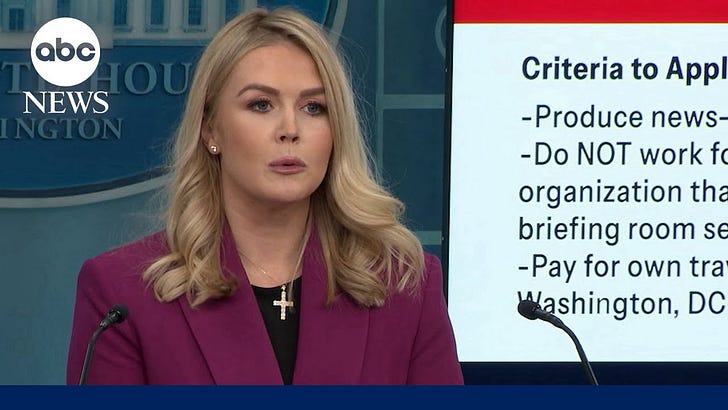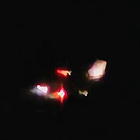Last week's Congressional Drone and UAP hearings
Drones and UAPs have become a major national security concern
Last week, the Congressional Subcommittee on Military and Foreign Affairs held a hearing on unauthorized drones over U.S. military bases.
Given the massive number of drones seen operating over New Jersey and then in other areas of the country last year, this hearing seemed worth sharing.
Testifying at the hearing were Rear Admiral Paul Spedero Jr. and Mark Roosevelt Ditlevson. Spedero is the vice director for Operations for the Joint Chiefs of Staff (JCS) and Roosevelt is the acting assistant secretary of Defense for Homeland Defense and Hemispheric Affairs.
The pair submitted a joint statement to the Committee that included an example of drone incursions documented as occurring over a two week period in December 2023 over Joint Base Langley-Eustis (JBLE), which is located in Virginia.
"DoD [Department of Defense] had little ability to detect, track, characterize, or
disrupt and defeat the sUAS at JBLE," the statement reads. "To my knowledge there has yet to be any attribution to any foreign or local actors responsible for the incident."
The statement goes on to say the DoD needs to develop "mass incursion" policies and responses, as well as create a "Warfighter – Senior Integration Group to Counter Unmanned Systems (W-SIG C-UXS)."
The main thrust of the statement is that the U.S. is behind the eight ball in detecting and engaging unauthorized drones over our bases both at home and abroad, as well as cartels using drones to monitor customs and border patrol activities.
Here is the full hearing, which lasted about an hour and a half:
Highlights from the hearing:
Related Reads:
More To The Story
In a related briefing event on May 2, members of the House Oversight and Accountability Committee spent over three hours discussing Unidentified Anomalous Phenomena (UAP) with members of the UAP Disclosure Fund (UDF). The briefing event was titled, "Understanding UAP: Science, National Security, and Innovation."
UDF describes itself as "a nonpartisan nonprofit supporting UAP legislation, protecting whistleblowers, and raising public awareness for greater transparency."
U.S. Reps. Anna Paulina Luna, Nick Begich, Eric Burlison and Tim Burchett heard from multiple members of UDF, including Dr. Avi Loeb, Christopher Mellon, Eric Davis, and Rear Admiral Tim Gallaudet. Several of UDF's members are former U.S. military and defense intelligence staffers.
Topics covered included:
UAPs and their implications for national security.
The need for scientific rigor and open communication.
The crucial role of bipartisan cooperation in inquiries.
The stigma present in academic research regarding UAP phenomena.
Investment in technology as a frontier for discovery in UAP studies.
The panel offered several major revelations and insights regarding UAPs.
First, there was acknowledgment of the long-term governmental concealment and compartmentalization concerning UAPs, including advanced craft crash retrieval programs that have been highly classified and shielded even from congressional oversight.
Davis detailed his decades-long direct involvement with UAP research and reverse engineering efforts, revealing that multiple governments, notably the U.S., China, and Russia, have recovered non-human-made craft. These programs were described as among the most secretive, more so than the Manhattan Project, and were claimed to utilize covert funding mechanisms such as shell companies in order to avoid congressional scrutiny.
Second, the panel highlighted the technological complexities surrounding UAP propulsion systems, which may involve space-time manipulation, negative energy density, and warp bubble concepts grounded in advanced physics theories. However, current human understanding and scientific tools are currently insufficient to fully understand these technologies. On this topic, Davis underscored the lack of engagement of qualified physicists in ongoing reverse engineering efforts, which compromises progress.
Third, Loeb presented pioneering scientific initiatives like Harvard’s Galileo Project which he heads up, aiming to establish continuous, AI-powered monitoring systems of the skies and oceans to collect high-quality data on UAPs in an objective manner. He stressed the need for substantial funding (likely billions of dollars) to enable systematic observation and analysis to unlock potential existential breakthroughs—including the possibility of discovering extraterrestrial artifacts or propulsion methods far beyond current human capabilities.
Additionally, Gaudette discussed the Navy’s extensive encounters with UAPs, describing a cultural environment where such sightings have become routine, yet discussions remain officially suppressed even when pilot safety is at risk. He also pointed out the limited high-resolution mapping of the ocean floors and advocated for expanded maritime observation using autonomous technologies, recognizing underwater UAP phenomena as an under-investigated domain.
The national security implications were also a critical topic of discussion, with former Intelligence and Defense officials like Chris Mellon exposing major vulnerabilities in US airspace awareness—highlighting that vast, expensive radar networks often fail to detect or report UAPs consistently, pointing to systemic sensor filtering, classification barriers, or institutional failure.
The panel also emphasized the pressing issue of mysterious drones operating persistently around military bases, nuclear facilities, and restricted airspaces, with unknown origin and potentially hostile capabilities. Relatedly, the scientific and commercial space sectors are increasingly engaging with the UAP topic, with calls for NASA and other agencies to mine archival space imagery and sensor data aided by AI/ML techniques, to search for UAP evidence, and to utilize microgravity research platforms (such as the International Space Station) to help understand what's being documented.
Finally, the panel highlighted institutional barriers, including the persistent stigma surrounding UAP research in mainstream science, academia, and even government agencies, which hampers funding, open investigation, and collaboration. The need for improved whistleblower protections was stressed to enable insiders with relevant information to safely come forward without fear of retaliation.
Congressional lawmakers are working on legislation related to transparency about UAPs in conjunction with the hearings that have been held on the topic. A classified briefing is also scheduled for May 12, per UDF's wrap-up on the May 2 meeting.
UDF's YouTube channel has multiple breakout videos of the discussions and the full UDF meeting video can be viewed below:






